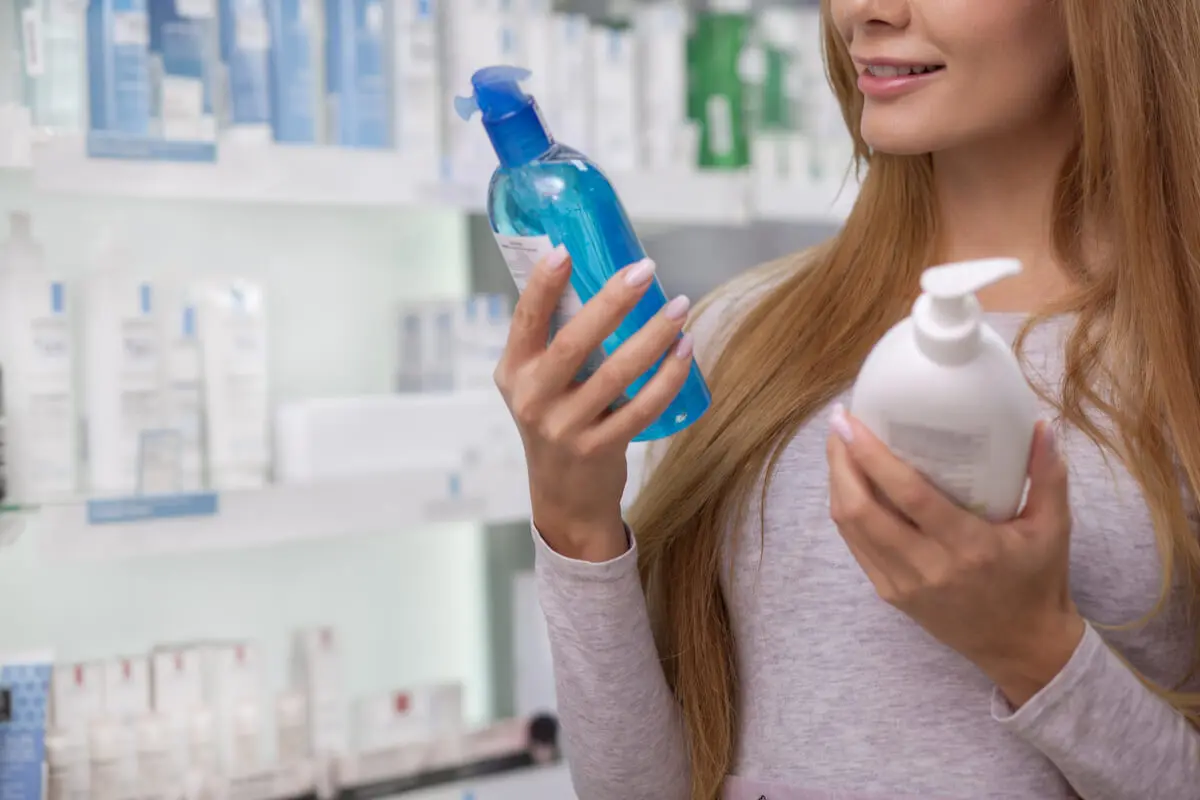Hypoallergenic Makeup: What are its Advantages?


Reviewed and approved by the nurse Leidy Mora Molina
Hypoallergenic makeup is very popular nowadays. It’s sought by people who have sensitive skin or who have shown reactions to items that do not carry this label.
The problem is that the concept of hypoallergenic is very general. In practice, it is not regulated. Many of the best cosmetic brands have such lines. But to what extent do they deliver on what they promise?
When hypoallergenic makeup is genuine, it offers great benefits for people with sensitive skin. In such cases, components with potential risks of causing irritation or allergies are eliminated or reduced.
What is hypoallergenic makeup?
Hypoallergenic makeup comprises cosmetic products that, in the opinion of their manufacturers, contain fewer irritating or potentially allergenic substances than normal makeup. In theory, they have been tested to ensure these properties.
Cosmetics are made with many different components, such as pigments, emulsifiers, metals, resins, preservatives, minerals, and perfumes. Some people with sensitive skin react negatively to one or more of these ingredients.
In these cases, inflammation, itching, redness, eczema, and tearing can occur. In short, there is a form of irritation that becomes severe. Those who produce hypoallergenic makeup reduce or eliminate the components that most cause these problems. In particular, one or more of the following:
- Alcohol
- Retinol
- Petroleum
- Phthalates
- Sulfates
- Aluminum
- Fragrances
- Parabens
- Diethanolamine
- Polyethylene glycol
- Synthetic colorants
We think you may be interested in reading this, too: One-coat Makeup: What is this Beauty Trend in TikTok All About?
Why use it?
Hypoallergenic makeup is created for sensitive, acne-ridden, or scarred skin. It is also for those who are allergic to some of the components of normal cosmetics. However, anyone can use this type of product.
It is important to note that none of these cosmetics is 100% neutral. Even so, they usually reduce the risk of irritation or allergic reactions. In any case, there are people who cannot tolerate this type of makeup either.
Caution should be exercised in the use of eye and lip products. These include eye shadows, pencils, sealing powders, illuminators, mascara, etc. It is best to make sure that they do not contain any heavy metals.

Choosing the right hypoallergenic makeup to take advantage of its benefits
There is no standardized regulation for hypoallergenic makeup.
This means that no specific parameters have been established to determine whether a cosmetic has hypoallergenic properties or not. Therefore, we can only attest to what each manufacturer states on the label.
That said, the best way to check if a product is suitable for delicate or sensitive skin is to look closely at the label. It’s important to look to see if it contains components that can cause irritation and in what proportion.
Ideally, those who have experienced allergic reactions to cosmetics should be clear about what element or ingredient causes them to have this effect. If this has not been established, the entire list of risky ingredients should be taken into account, and make sure to use makeup that does not contain them or only contains a minimal proportion of them.
Products made from natural substances, such as aloe vera or almond oil, are closer to hypoallergenic makeup. All these items are usually less aggressive to the skin.
Like this article? You may also like to read: 13 Makeup and Hairstyle Tricks to Save Time in the Mornings
Some tips on how to choose hyperallergenic products
The most important recommendation is to read the label very well before buying hypoallergenic makeup. In particular, caution should be exercised when purchasing products containing the following substances in high proportion:
- Alcohol
- Retinol
- Aluminum
- Alpha hydroxy acids
- Essential oils
- Natural or synthetic fragrance
- Chemical sunscreen
The above are the elements that most frequently cause irritation. The important thing is that, if they are present, their percentage is very low in relation to the other components. If the proportion is high, it’s not really hypoallergenic makeup.

Hypoallergenic makeup may be recommended by a doctor
Hypoallergenic makeup is usually a little more expensive than classic makeup. However, the price difference does not have to be very high.
It’s important to keep in mind that more than a few companies use the hypoallergenic makeup label as a sales pitch, but do not guarantee that they are actually less aggressive. Therefore, do not be fooled and refrain from buying these products if there is any doubt.
People who have skin problems, especially if they are severe, should consult a dermatologist before purchasing cosmetics. A doctor will be able to recommend specific products that do no harm.
All cited sources were thoroughly reviewed by our team to ensure their quality, reliability, currency, and validity. The bibliography of this article was considered reliable and of academic or scientific accuracy.
- Laguna, C., De la Cuadra, J., Martín-González, B., Zaragoza, V., Martínez-Casimiro, L., & Alegre, V. (2009). Dermatitis alérgica de contacto por cosméticos. Actas Dermo-Sifiliográficas, 100(1), 53-60.
- Alay Murillo, J. P., & Macas López, M. F. (2021). Estudio comparativo de metales pesados plomo y cadmio en cosméticos sólidos (Doctoral dissertation, Universidad de Guayaquil. Facultad de Ciencias Químicas).
- Edo, C. B. (2008). Maquillaje cosmético: Maquillaje hipoalergénico. Acofar: revista de la distribución farmacéutica cooperativista, (481), 34-36.
This text is provided for informational purposes only and does not replace consultation with a professional. If in doubt, consult your specialist.








